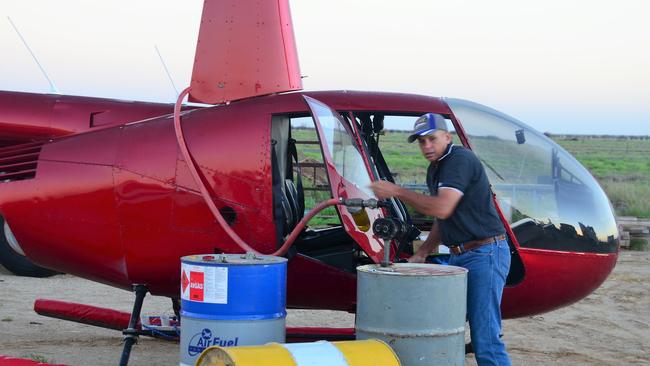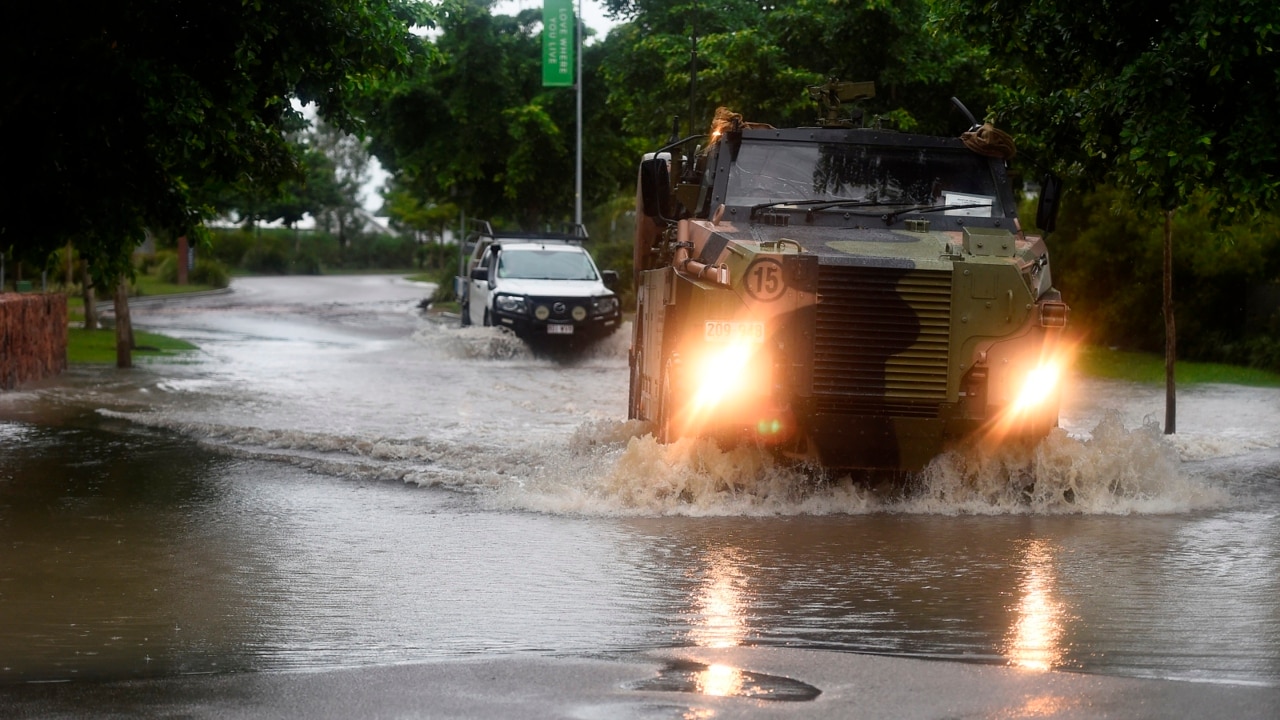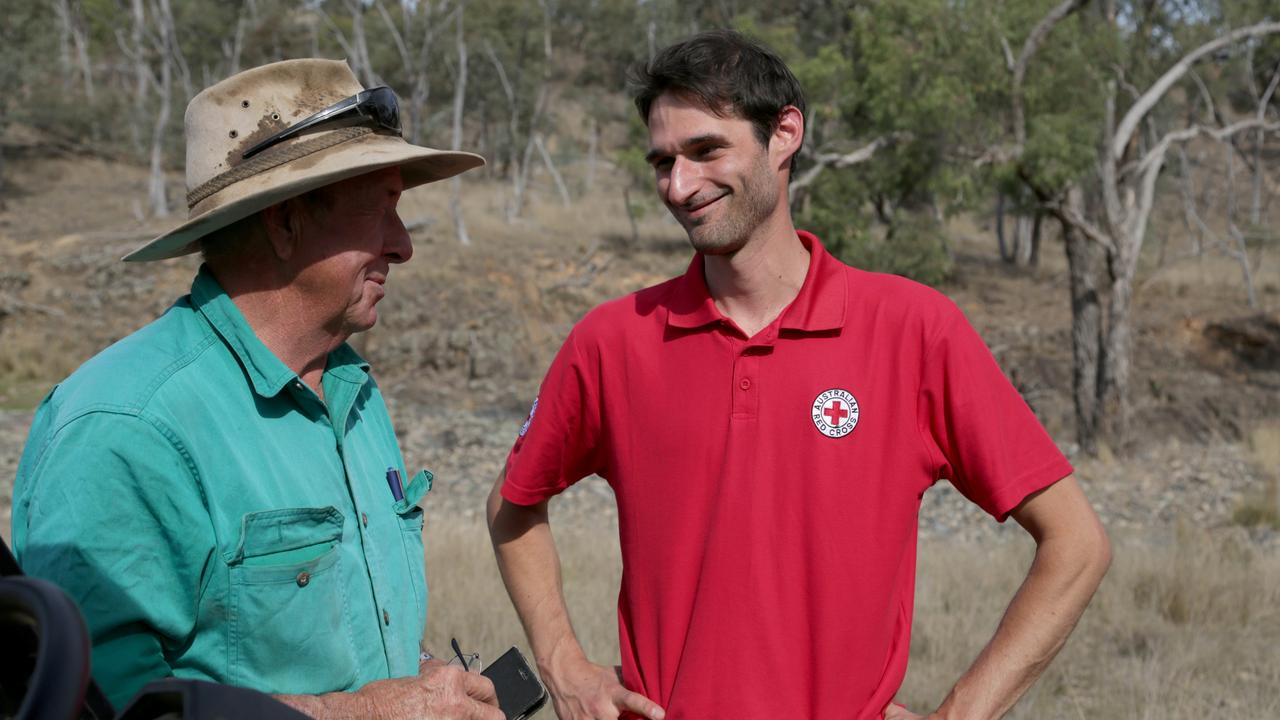Stations cut off by floodwaters
If it wasn’t for bush helicopter pilots, people would be left cut-off and isolated on stations across North Queensland’s flooded inland.

IF it wasn’t for bush helicopter pilots, people would be left cut-off and isolated on stations across North Queensland’s flooded inland.
Kathy Parry who lives alone on Glenbervie Station 60 kilometres southwest of Julia Creek is just one of dozens of station owners singing the praises of the boys from the bush, buzzing around in helicopters, bringing in food, fuel, hay and a helping hand.
Fears for future of struggling towns devastated by deluge
Townsville floods: Concerns over influx of mosquitoes
They might not have trained as counsellors or social workers, but when they land their choppers outside a station gate and shut down the engine, they are like a breath of fresh air blowing into lives that have sunk into despair.
Ordinarily they are larrikin, young Australian blokes riding the outback thermals in their Robinson -22 and Robinson-44 helicopters, mustering cattle, doing jobs for mineral exploration companies or taking cashed up clients into otherwise inaccessible fishing spots. There’s no ‘lettuce leaf’ on the shoulders, no epaulettes or creased, white shirts.
They dress in boots, western cut jeans, double pocket, cotton shirts and baseball caps that commonly bear the logo of a helicopter company or a livestock trucking firm.
Out on the stations they’re known as the ‘chopper pilots’.
On the stations, young ringers stuck on the ground mustering cattle from horses and bikes, always lament that it’s the swaggering chopper pilots who always get the girls. It’s a fact of life.
They are in among it out here now. It’s serious work.
They fuel up at daylight and fly out with bales of hay or drums of fuel dangling by ropes or slings from the underbelly of their machines.
It’s back and forward all day. Do a run, might be 400 kilometres, come back, fuel up and head out again with another load.
Station people are worried that the chopper pilots will be overlooked when it comes to mental health evaluations when all of this over.
They are the first responders. The pilots might not know it themselves but they are experiencing vicarious trauma.
They are dealing with people suffering trauma. They are seeing extraordinary numbers of dead and dying cattle and in many cases are having to shoot cattle too weak to stand.
Most of them have been raised on stations. They understand cattle. Caring for livestock is in their blood. There wouldn’t be one among them who hasn’t waded into a stagnant dam, sinking down to the hips in slime, mud and manure to save the life of a bogged cow.

Now they watch helplessly as animals struck down by a force of nature, die.
We visited Kathy Parry in 2016 to do a story on the drought. She’s a fighter and as resourceful as they come.
As far as Kathy is concerned, forget the drought. It’s nothing. The flood that happened with no warning, has taken 80 per cent of her cattle.
There are dead cattle along the fence leading up to the homestead. She should be thinking of herself.
I’ve spoken to her twice this week and both times she expressed concerns about the welfare of the chopper pilots.
“I feel for them. It’s dreadful. People are talking about what we are going through, but these boys are seeing it all the time. They are bush fellers, from the land. They can see the big picture, it’s not just a job they are doing. We all think about ourselves, but what about them?” she said.
Ms Parry, who is well-provisioned in terms of her own food supplies, expects to be cut-off by road from Julia Creek for 10 to 12 weeks.
She always asks the pilots if they’d like a cup of tea when they land with hay and they always decline.
“They’re always running behind to get to the next place that needs help. I don’t know what we’d do in situations like this if we didn’t have chopper pilots,” she said.
Originally published as Stations cut off by floodwaters


